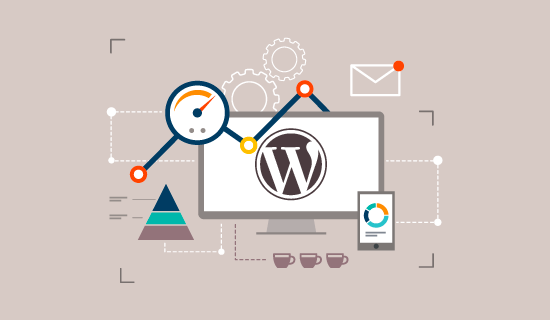In today’s fast-paced digital landscape, website speed is more critical than ever. With users expecting instant access to information and seamless browsing experiences, optimizing your website for speed is essential for retaining visitors, improving search engine rankings, and driving conversions. In this article, we’ll explore some tips and tricks for boosting your website speed and delivering lightning-fast performance to your audience.

Website Speed: The Unsung Hero of User Experience (and SEO!)
1. Minimize HTTP Requests
One of the most effective ways to speed up your website is to minimize the number of HTTP requests required to load a page. Each element on your page, such as images, stylesheets, and scripts, requires a separate HTTP request. By reducing the number of external resources and combining files where possible, you can streamline the loading process and improve overall performance.
2. Enable Browser Caching
Browser caching allows web browsers to store static files, such as images, CSS, and JavaScript, locally on a user’s device. This means that subsequent visits to your website will load faster, as the browser can retrieve cached files instead of downloading them again from the server. By configuring caching headers and expiration dates for your website assets, you can leverage browser caching to optimize load times and enhance user experience.
3. Optimize Images
Images are often the largest files on a webpage and can significantly impact loading times if not optimized properly. To reduce image file sizes without sacrificing quality, use compression techniques such as lossless compression or serve images in next-gen formats like WebP. Additionally, specify image dimensions in your HTML to prevent layout shifts and lazy load images to defer their loading until they’re needed, further improving page speed.
4. Minify CSS and JavaScript
Minifying CSS and JavaScript involves removing unnecessary characters, such as whitespace and comments, from code files to reduce file size. Smaller file sizes mean faster download times, resulting in quicker page rendering for users. Utilize minification tools or plugins to automatically minify your website’s CSS and JavaScript files, ensuring optimal performance without compromising code readability.
5. Implement Content Delivery Network (CDN)
A Content Delivery Network (CDN) is a network of servers distributed across multiple geographic locations that deliver website content to users based on their proximity to the nearest server. By serving content from the nearest CDN edge server, CDNs minimize latency and reduce the time it takes to retrieve assets, resulting in faster load times for visitors worldwide. Integrate a CDN with your website to leverage its caching and network optimization capabilities for improved performance and reliability.
6. Reduce Server Response Time
Optimizing server response time is crucial for ensuring swift website performance. Factors that influence server response time include server hardware, software configuration, and network latency. To minimize response time, choose a reliable web hosting provider, utilize caching mechanisms, and optimize your server’s configuration for efficiency. Regularly monitor server performance and address any bottlenecks or issues promptly to maintain optimal website speed.
7. Prioritize Above-the-Fold Content
Above-the-fold content refers to the portion of a webpage that is visible without scrolling. Prioritize loading critical above-the-fold content, such as headline text and primary images, to ensure that users can access essential information quickly. Lazy loading techniques can be employed to defer the loading of non-essential below-the-fold content until after the above-the-fold content has been rendered, further improving perceived page speed.
Incorporating these tips and tricks into your web development workflow can help you optimize your website for speed and deliver exceptional user experiences. By prioritizing website speed, you can enhance user satisfaction, improve search engine rankings, and achieve your business goals online. So take the time to evaluate your website’s performance and implement these optimizations to ensure that your site loads quickly and efficiently for every visitor.